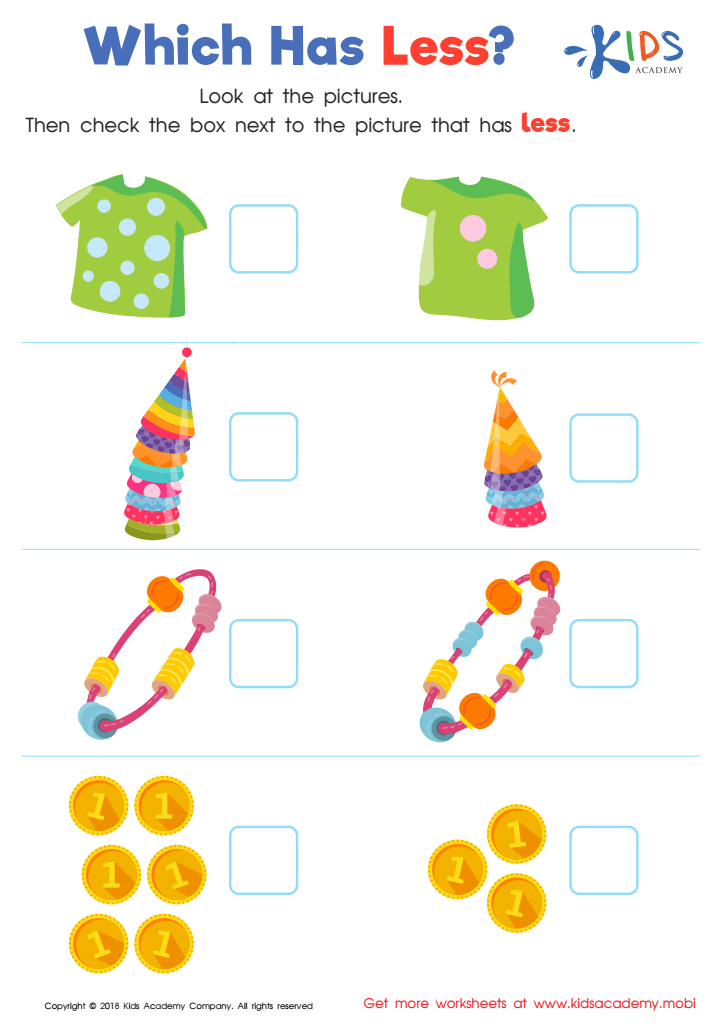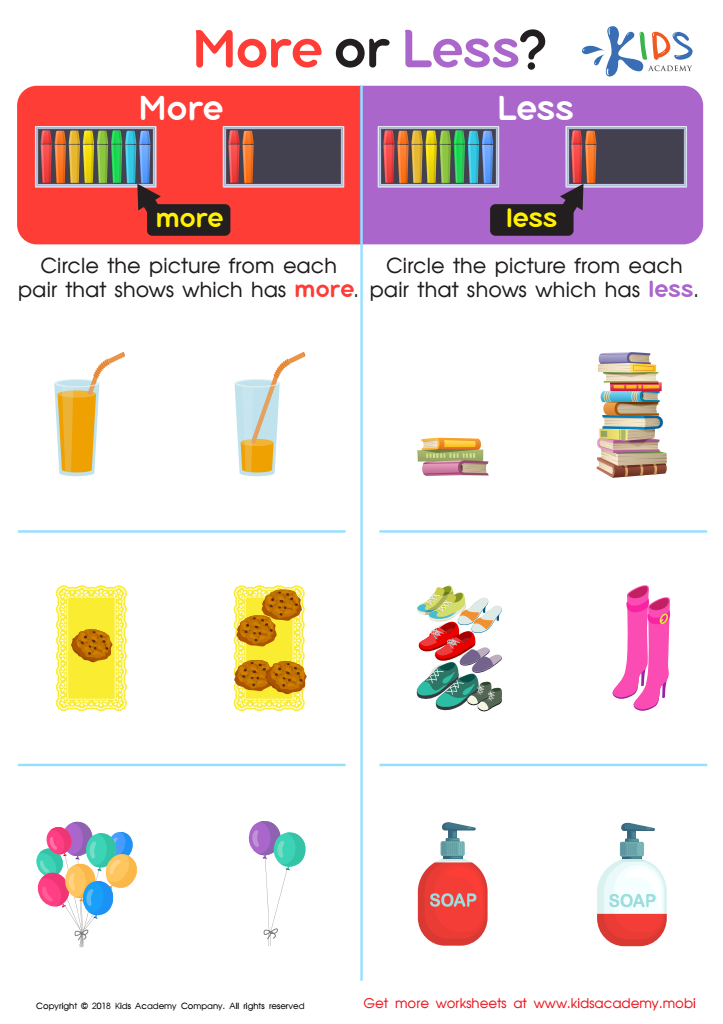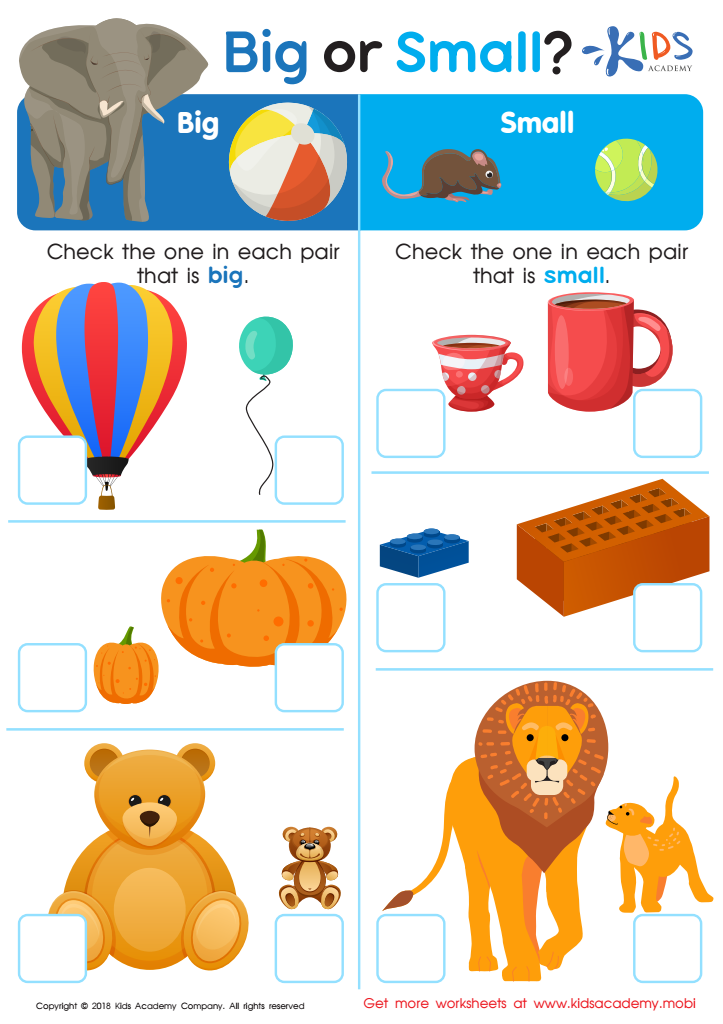Easy Comparison Worksheets for Ages 3-6
3 filtered results
-
From - To
Unlock foundational math skills with our "Easy Comparison Worksheets for Ages 3-6." Designed for young learners, these engaging printable worksheets make mastering concepts like sizes, quantities, and shapes a breeze. Each activity is crafted to develop critical thinking and visual discrimination, ensuring a solid preparation for more advanced math concepts. Perfect for parents and teachers alike, our fun and visually appealing worksheets offer a playful yet educational approach to early math learning. Visit Kids Academy to download and start boosting your child's comparison skills today!


Which Has Less? Worksheet


More or Less? Worksheet


Big or Small? Worksheet
Parents and teachers should prioritize fostering the skill of easy comparison in children ages 3-6 because it forms the foundation for early mathematical understanding and critical thinking. At this developmental stage, children are naturally curious and continually exploring their environment. By encouraging them to compare objects, sizes, quantities, and even basic patterns, we help them develop essential cognitive skills such as observation and analysis.
Easy comparison skills enable children to recognize similarities and differences, which is crucial not just for math, but for learning in general. For example, distinguishing between more and less or noting that some things are taller or shorter lays the groundwork for understanding number concepts, measurement, and spatial relationships. Furthermore, these activities boost vocabulary and language skills as children learn terms like "bigger" and "smaller" and begin forming more complex sentences.
In addition, mastering comparison fosters critical thinking and problem-solving abilities. It teaches children to make judgments based on evidence and to organize information systematically. Nurturing these abilities early on sets a positive trajectory for future academic success and everyday decision-making. Ultimately, by focusing on easy comparison, parents and educators equip children with the tools necessary for more complex learning and cognitive development.
 Assign to My Students
Assign to My Students















